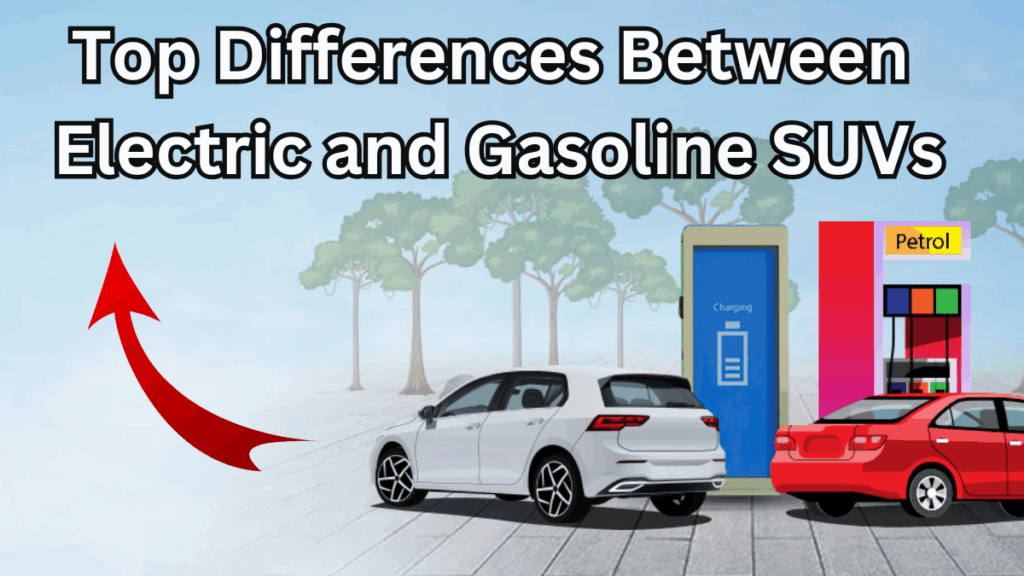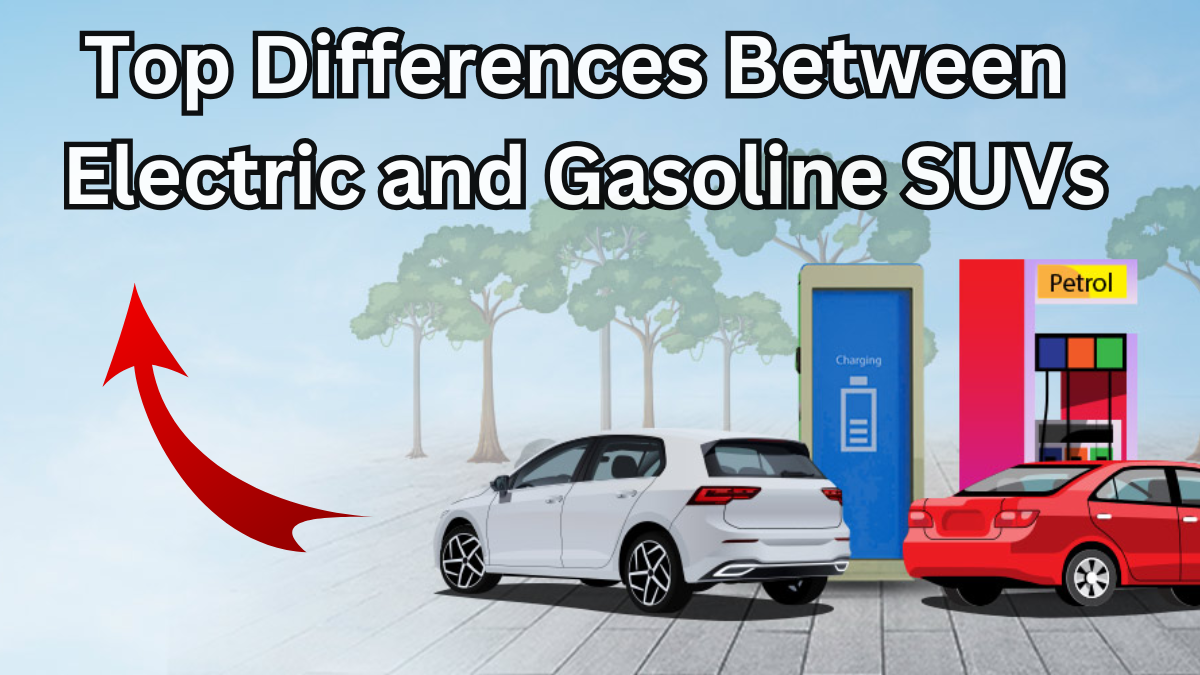Choosing between an electric SUV and a gasoline SUV can feel overwhelming with so many factors to consider. Whether you’re driven by sustainability, cost-efficiency, or performance, understanding the key differences helps you make an informed decision. In this article, we’ll break down the top differences between electric and gasoline SUVs and guide you through the EV SUV comparison to see which option suits your lifestyle best.

What Sets Electric SUVs Apart from Gasoline SUVs?
When it comes to electric vs gasoline SUVs, the core distinction lies in their power sources. Electric SUVs run on batteries and electric motors, while gasoline SUVs rely on internal combustion engines fueled by petrol or diesel. But the differences go far beyond that.
Key Differences to Know
-
Fuel Source: Electric SUVs use rechargeable batteries; gasoline SUVs burn fuel.
-
Emissions: EVs produce zero tailpipe emissions; gasoline SUVs emit CO2 and pollutants.
-
Performance: Electric motors deliver instant torque, often resulting in quicker acceleration.
-
Maintenance: EVs generally require less maintenance due to fewer moving parts.
-
Refueling/Recharging: Gasoline SUVs fill up in minutes; EVs may require longer charging times.
-
Driving Range: Gasoline SUVs typically have longer ranges, but EV ranges are rapidly improving.
-
Cost: EVs usually cost more upfront but save money over time on fuel and maintenance.
EV SUV Comparison: Side-by-Side Breakdown
Here’s a detailed EV SUV comparison table to give you a quick overview of how electric and gasoline SUVs stack up against each other:
| Feature | Electric SUVs | Gasoline SUVs |
|---|---|---|
| Power Source | Battery-electric motor | Internal combustion engine |
| Emissions | Zero tailpipe emissions | Emits CO2 and other pollutants |
| Acceleration | Instant torque, smooth acceleration | Gradual acceleration |
| Fueling Time | 30 minutes to several hours (charging) | 5 minutes (refueling) |
| Range | 200–400+ miles (varies by model) | 300–500+ miles |
| Maintenance | Low – fewer parts to service | Higher – oil changes, filters, etc. |
| Running Cost | Lower electricity costs | Higher fuel costs |
| Upfront Cost | Generally higher | Generally lower |
| Noise | Quiet operation | Engine noise |
Fuel vs Electric SUVs: Which One Fits You?
Making the choice between fuel vs electric SUVs often depends on your priorities and lifestyle.
Consider an Electric SUV if:
-
You want to reduce your carbon footprint.
-
You mostly drive in urban or suburban areas with access to charging stations.
-
You prefer lower long-term maintenance and operating costs.
-
You enjoy smooth, quiet rides with instant acceleration.
Consider a Gasoline SUV if:
-
You often take long trips to areas with limited charging infrastructure.
-
You need a vehicle with quick refueling and longer driving range.
-
You want a lower upfront cost and more model options.
-
You are accustomed to traditional vehicles and fueling habits.
Why Is the EV SUV Market Growing?
The rise in popularity of electric SUVs is reshaping the automotive landscape. Governments worldwide are promoting greener vehicles, and consumers are more conscious of environmental impact. Plus, advancements in battery technology mean EVs are becoming more affordable and practical every year.
FAQs
1. Are electric SUVs more expensive than gasoline SUVs?
Yes, electric SUVs typically have a higher upfront cost due to battery technology, but you save on fuel and maintenance in the long run.
2. How long does it take to charge an electric SUV compared to refueling a gasoline SUV?
Charging an electric SUV can take from 30 minutes to several hours depending on the charger type, whereas refueling a gasoline SUV usually takes about 5 minutes.
3. Do electric SUVs have enough range for long trips?
Many modern electric SUVs offer ranges between 200-400 miles, which is sufficient for most daily driving and moderate road trips. However, gasoline SUVs generally offer longer ranges.
4. Which SUV type is better for the environment?
Electric SUVs produce zero tailpipe emissions, making them much cleaner in everyday use compared to gasoline SUVs, which emit greenhouse gases.
Click here to learn more
